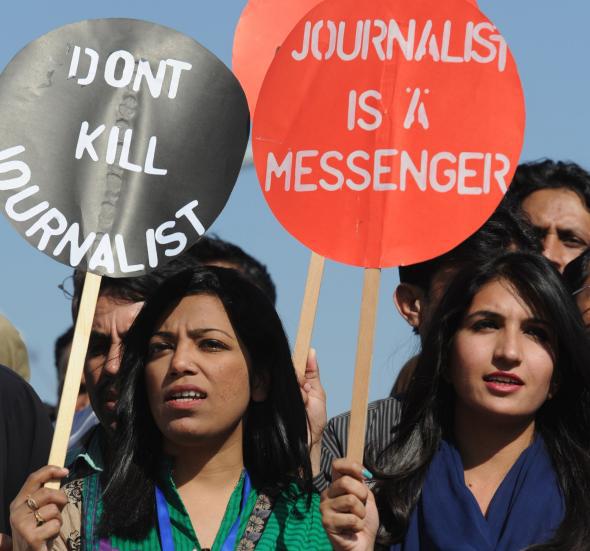U.S. NGO Freedom House is out with its annual Freedom of the Press index today and, as has been the case for the last several years, the overall news is not good:
Of the 197 countries and territories assessed during 2013, a total of 63 (32 percent) were rated Free, 68 (35 percent) were rated Partly Free, and 66 (33 percent) were rated Not Free. This balance marks a shift toward the Not Free category compared with the edition covering 2012, which featured 63 Free, 70 Partly Free, and 64 Not Free countries and territories.
There were a total of 10 status changes, with four in a positive and six in a negative direction. Most were from the Partly Free to the Not Free category. In terms of significant numerical shifts of three or more points, declines (15 countries) outnumbered gains (11 coun- tries) in 2013.
The most notable additions to the “not free” category are Turkey, the world’s leader in jailing journalists, and Ukraine. While the United States is still classified as free, it did see a significant drop in its score this year due to the “legal harassment of journalists with regard to protection of sources; and revelations of surveillance that included both the bulk collection of communications data by the National Security Agency (NSA) and the targeted wiretapping of media outlets.” The report highlights, in particular, the case of New York Times reporter James Risen.
Arch Puddington, Freedom House’s vice president for research, told Slate that he was most struck by the grim state of affairs for journalists in Eurasia, a region that for the purposes of this report includes all the countries of the former Soviet Union.
“Ninety-seven percent of the people who live in Eurasia live in not-free environments. That puts Eurasia even well below the Middle East,” he said. “The cumulative impact of 10 or 15 years of pressure on journalism in that region has created a really unique situation by post-Cold War global standards where there’s not a free press in the whole region. There are only partly free presses in Georgia and Moldova.”
And all this was before the well-publicized recent incidents of reporters being beaten and detained in Crimea and eastern Ukraine.
The press situation in Egypt, which Puddington feels may now be worse than it was under the rule of Hosni Mubarak, also stands out. “After the Arab Spring you had an explosion of new media of all kinds—radio, television, newspapers, all kinds of online projects—and when [Mohamed] Morsi was president, the media pushed back against some of his politics, he said. “But after the [July 3, 2013] coup, the major media has gotten in line behind [former military commander and likely future president Abdel Fattah el-]Sisi, and seem to be competing with each other to see who can be more sycophantic.”
The report’s release is particularly timely, given the current situation in Ethiopia, where nine bloggers and journalists who had been critical of the government were jailed just prior to Secretary of State John Kerry’s arrival in the country—a longtime U.S. ally, particularly on counterterrorism issues. Kerry says he raised the issue during a conversation with the country’s prime minister, but Puddington feels the U.S. could do more to pressure allies like Ethiopia
“I don’t believe that because we have a security relationship with a country like Ethiopia that it’s impossible to pound the table and get some action on political prisoners,” he said. “During the Cold War, even during the worst periods, the United States had all sorts of relationships with the Communist world and with the Soviets, but on the issue of political prisoners make an issue of them and we often got results. I’m not seeing this today and certainly these Ethiopian bloggers are a case in point.”
The two brightest spots in the report are a bit unexpected. The Ivory Coast moved from “not free” to “partly free” following a “decrease in the use of restrictive press laws” and “a reduction in official censorship” Mali saw the biggest numerical improvement in score following the “restoration of the constitution and an elected government” in the south of the country and the ouster of Islamist factions from the north, allowing journalists to regain “much of their ability to cover the news without fear of repercussion.” Though as the report notes, this limited progress was marred by the killing of two French journalists last November.
